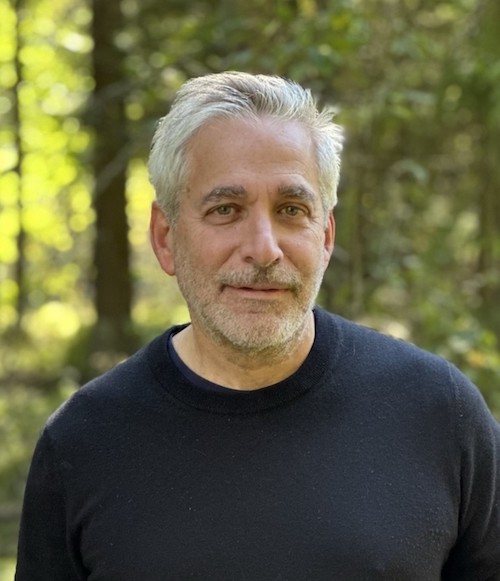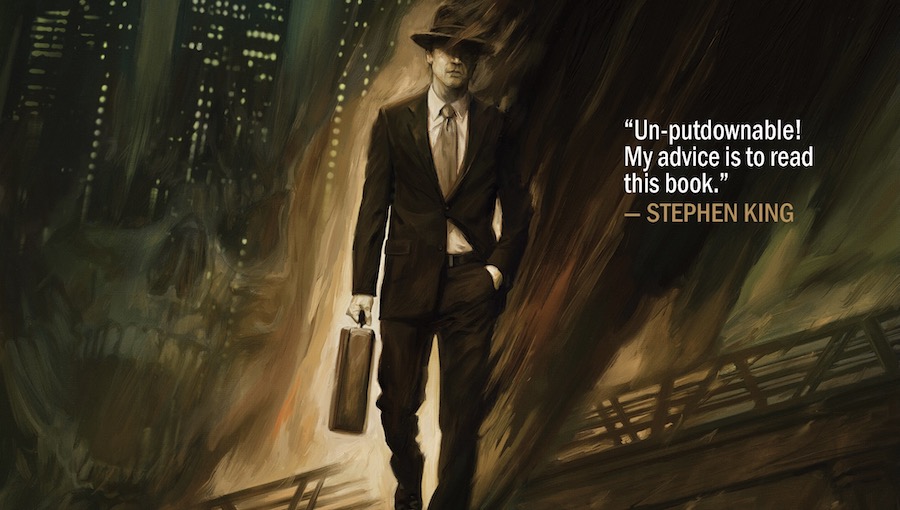The following is an interview with award-winning author, journalist, and television producer Peter Blauner regarding the rerelease of his critically acclaimed novel, The Intruder, through Dead Sky Publishing. In this interview, Fanbase Press Editor-in-Chief Barbra Dillon chats with Blauner about his creative experience in revisiting the story nearly 27 years after its initial release, what he hopes that modern audiences may take away from the story, and more!
Barbra Dillon, Fanbase Press Editor-in-Chief: Congratulations on the anniversary rerelease of The Intruder! As you look ahead to the release, what has been your experience in revisiting the story nearly 27 years later?
Peter Blauner: I hadn’t thought about The Intruder in a very long time when the idea of republishing it came up. Bob Dylan said, “Don’t look back,” and on that score I usually think he’s right. I wrote most of the novel in 1993 and 1994 when New York City was a very different place. Or so I believed. There was no social media back then. Most people didn’t have cellphones. To take a picture, you needed to have a camera. And, to be honest, I thought the omnipresent sense of intrusion and danger you felt on the city streets of that era was gone and forgotten. When I showed our sons Martin Scorsese’s Taxi Driver maybe ten years ago, it seemed almost as distant from their experiences of growing up in town as Star Wars.

Now we’re back to the future, or rather back to the past – to some extent. The story was inspired by an incident in which a homeless man came up and threatened me while I was pushing my then one-year-old son in a stroller. That kind of thing is happening more frequently again. Or at least it’s getting covered more frequently by the media. In reality, the gap between haves and have-nots never really went away. In fact, it’s gotten wider. And the struggle for mental health is a permanent part of the human condition.
So, other than the absence of cellphones and social media in the narrative, this story could easily start taking place at 2:30 this afternoon.
BD: Likewise, in revisiting the story, was there anything new or intriguing that you took away from the work that you hadn’t anticipated when originally creating it?
PB: I was sort of surprised to discover how direct and unapologetic the writing is. Maybe too unapologetic in places! I guess I come from the punk/Don Rickles school where you come out raw, try to be fair by insulting everybody equally (and maybe showing them equal compassion), and then let the chips fall where they may. I left most of the text alone, but did change one or two words that I thought might leave some contemporary readers feeling unnecessarily hurt. But otherwise, this is the way it was, take it or leave it.
I know the book is marketed as a “thriller,” but I didn’t just make this story up off the top of my head. I went out into the street and looked for it, like I was still a reporter at New York magazine. I worked with homeless people at the Bellevue shelter for a year. I hung out with both the unhoused and the well-housed. I visited the encampments of the “Mole People” who lived in train tunnels beneath Riverside Park in Manhattan. And I kept careful notes at every step. Then, I tried to shape that reality into a suspenseful story with characters I found worth exploring.
So, I guess what’s most interesting to me is that the story still seems fresh because (I hope) some authentic feeling got caught on the page. It’s up to readers to tell me if I’m right about that.
BD: In light of your own experiences in crime reporting, novel writing, and TV writing, do you feel that the approach to narrative has evolved over time since your work in the field?
PB: I think we’re in a time of breathtaking divisiveness and partisanship. And that’s reflected in a lot of the work I see in journalism, novels, TV, and theater. You’re either on one side or another. And just to be clear, I’m not singling out leftist playwrights or activists-journalists alone. You get a lot of right-wing flag-waving and materialistic jingoism on TV and in pop music. And I believe silo culture and the internet have intensified those divisions.
Maybe I’m just an Old Head, but I’m more drawn to stories and characters that transcend divisions. I’m talking about narratives that are so strong and empathetic that you forget your preconceived notions and have to see the world through another set of eyes. When I read Anna Karenina or something more modern like Harlem Shuffle by Colson Whitehead, I don’t think, “Oh, I can’t relate to this because I’m not a Russian in the 19th Century or a Black man in the 1960s.” I think, “Damn, this is a good story. I wish I could’ve written it.”
BD: At Fanbase Press, our #StoriesMatter initiative endeavors to highlight the impact that stories can have on audiences of various mediums. How do you feel that Jacob and John’s stories may connect with and impact readers?
PB: A little while back, I stumbled onto this clip of James Baldwin debating the conservative William F. Buckley at the University of Cambridge in 1965. It really seems like a transmission from another galaxy long, long ago and far, far away. But a phrase that Baldwin used has really stuck with me. He talked about how every human being has their own “system of reality.”
Other people say “everyone’s in their own movie.” But that’s not quite right, I think. A system of reality is not just your own romantic delusions about how attractive, heroic, and smart you are. It’s a way of understanding everything in the world: sex, politics, religion, violence, hunger, climate change, tribalism, and the right to exist.
We’re all locked into our own heads. Most of us are only given two eyes at birth to see what’s around us. A good piece of writing can let you escape that prison, if only for a moment. So, in juxtaposing the points of view of Jake, the seeming pillar of society, and John G., the unmoored outsider, I’m trying to present a get-away plan – or a way to see reality through someone else’s eyes.
I don’t mean to sound pretentious or preachy. I am, after all, just trying to tell an entertaining story that will scare you and maybe make you laugh once in a while. The thing is, I think it is entertaining and suspenseful to get jolted into someone else’s point of view. Stephen King, who knows a lot about being a successful author, says that a novel comes alive when you bring together two opposing points of view. Who’s going to argue with that man?
BD: What makes Dead Sky Publishing the perfect home for the anniversary edition of The Intruder?
PB: The fact that it was started by my friend Jeremy Wagner and he’s a certifiable great guy. Jeremy is an accomplished musician and author in his own right. But he’s something that’s just as important. He’s generous and secure enough to really appreciate what other people are trying to accomplish in music and writing. And he’s willing to put his time and money where his mouth is. Along with his colleagues at Dead Sky, he’s bringing new work into the world and giving older work like The Intruder a chance to find a new audience. I’ve been with more traditional publishers for a very long time, and Dead Sky is a very welcome addition to that constellation system.
BD: Are there any upcoming projects on which you are currently working that you would like to share with our readers?
PB: I published my first historical suspense novel, Picture in the Sand, in 2023, and it’s one of my proudest career accomplishments. It’s about what happened when Cecil B. DeMille brought his production of The Ten Commandments to Egypt in the immediate aftermath of a revolution where the king was deposed and religious terrorists tried to take over the country. I worked on it for twenty years and am very glad it’s finally out in the world. Here’s a short video about it.
BD: Lastly, what is the best way for our readers to find more information about The Intruder and your other work?
PB: Please visit me at www.peterblauner.com. I love to hear directly from readers. It’s really what makes the job worth doing at the end of the long day.

